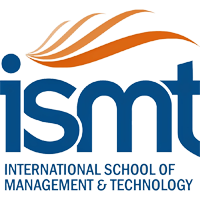Overview
The Westminster College (TWC) in Kupondole, Lalitpur, stands out as a significant educational institution in Nepal. It's renowned for offering specialized courses in B.Sc. (Hons.) Computer Science. These four-year degree programs are designed to cater to the evolving demands of the global IT industry. This program is affiliated with the University of Westminister, UK.
Course Summary
This programme covers all aspects of modern computer science and specialised computer science topics, laying foundations for student’s success in a rapidly changing environment. Students will develop a wide range of skills and knowledge areas such as mobile and web computing, data science, software engineering, software security and artificial intelligence.
Key Information
- Affiliation: University of Westminister (UoW)
- Total Credits: 480
- Each year: 120 credits
- Duration: Four years full time
- Course Code: BSCSS06F
- Semester/ Year transfer: Available for University of Westminister
- Internship/Placement: Available
Career Focused
Graduates can pursue careers in software development, data analysis, artificial intelligence, computer graphics, and many other areas. They can work in various industries such as finance, healthcare, gaming, transportation, and education.
Some specific job titles includes- Software developer, Data Scientist, Machine Learning Engineer, Database administrator, Cloud engineer and more.
Developing Skills valued by Employers- To make sure you stand out to prospective employers, we employ expert academics who maintain close links with industry. In this way we can ensure that you leave us with the latest skills and knowledge that your chosen career requires.
Skill Oriented Courses- We provide a number of skill specific courses in conjunction with industry partner.
Entry Requirements
Academic Level
Higher Secondary Education Board (HSEB)-10+2/CBSE with 55% (GPA 2.4) or equivalent
For A Levels, a minimum of 3.5 credits with 3 full credits*
*Any other qualification must be approved by the Course Leader before being accepted
Why choose this course?
Studying Computer Science provides a dynamic blend of academic and practical learning, employing various teaching methods, including lectures, tutorials, and labs. Assessment includes tests, exams, and coursework.
Our well-equipped labs feature Windows 10 PCs and industry-standard software. With 16 hours of weekly classes and an equivalent commitment to self-study, you'll benefit from extensive university resources and open lab access. While owning a PC is common, it's not mandatory, thanks to available facilities.
The Blackboard platform facilitates 24/7 access to electronic resources, interactive discussions, and coursework submission from anywhere, enhancing flexibility in your learning journey.
What will I study?
The primary aim of the foundation year (your first year) is to prepare students for further study at levels 4-6 on their chosen course by giving them a solid foundation in the knowledge and skills required to commence level 4.
In your second year of study (called Level 4) you will make the full transition into Higher Education. You will develop the key core skills for Computer Science complemented with the foundations of your specific course or cognate area. To help this transition your course has additional classes and support sessions at this level that you will need to fully engage with so you can prepare for the advanced study that follows. There will be drop-in session once a week for those who need extra support in their modules. The drop-in- session will be increased on need basis as per the demand of the students.
Your third year of study (Level 5) will help you develop some autonomy. At this level, you will develop detailed knowledge in Computer Science and will be able to deal with more areas by yourself and in teams, reflecting on your own strengths and identifying areas to specialise in.
In your final year of study (Level 6) you will have learned to work autonomously with your lecturers increasingly being there to support you and challenge your thinking; this is the level that completes your preparation for going into industry and further study, with an ability to handle the complexity of large-scale systems and environments and with full control of your further development needs.
What will you learn?
Your course is a collection of learning opportunities. Using these opportunities will help you mature in attitude and competence, preparing you for your future career and life in general. Learning in your course is a partnership: expert University staff will guide you through the necessary core knowledge of your subject and help you develop an understanding, while you, increasingly, take the leading role in pursuing the learning that meets your specific needs.
Your course is organised into a number of modules at each level. These are the building blocks of your course. Each module consists of a number of learning activities over a number of weeks designed to help you achieve the knowledge and skills related to a particular area within your subject.
The principal aim of your course is to equip you for professional life, or higher study, relevant to your current programme of study.
How will you be assessed?
You will undertake a wide variety of assessment tasks as you progress through your degree course. Their nature will vary according to your level and the nature of the task. Some, such as group work, will help you to develop practical skills alongside the more specific skills that are being assessed. You will write essays and research reports, and learn to write in a style suitable to a piece of academic work, and to make proper use of references and bibliographies.
Other forms of assessment will include practical exercises ranging from small tasks that might be completed in a tutorial, to something more complex like designing and writing a larger computer program. There will be some formal examinations (usually at the end of each academic year). Some of the work will be completed individually, and sometimes you will work with other students as part of a team, emulating as close as possible the environment you will face in your later life in industry.
Many assessments will be based on real-life scenarios typically found in the software industry. This might include client requirement elicitation, extracting hard software requirements from given business requirements, then designing and implementing a solution.
Further Information
How do we ensure the quality of our courses and continuous improvement?
The course was initially approved by a University Validation Panel in 2023. The panel included internal peers from the University, academic(s) from another university and a representative from industry. This helps to ensure the comparability of the course to those offered in other universities and the relevance to employers.
The course is also monitored each year by The Westminster College and the University of Westminster to ensure it is running effectively and that issues which might affect the student experience have been appropriately addressed. Staff will consider evidence about the course, including the evidence of student surveys, student progression and achievement and reports from external examiners, in order to evaluate the effectiveness of the course.
Course Structure
Year 1
|
Semester I |
|
|
Module Title |
Credit |
|
Computer Systems and Networks |
20 |
|
Introduction to Academic Practice |
20 |
|
Foundation Mathematics |
20 |
|
Semester II |
|
|
Module Title |
Credit |
|
Information Systems and Data Representation |
20 |
|
Critical Thinking for Academic and Professional |
20 |
|
Programming |
20 |
Year 2
|
Semester I |
|
|
Module Title |
Credit |
|
Trends in Computer Science |
20 |
|
Computer Systems Fundamentals |
20 |
|
Software Development I |
20 |
|
Semester II |
|
|
Module Title |
Credit |
|
Web Design and Development |
20 |
|
Mathematics for Computing |
20 |
|
Software Development II |
20 |
Year 3
|
Semester I |
|
|
Module Title |
Credit |
|
Object Oriented Programming |
20 |
|
Client-Server Architectures |
20 |
|
Software Development Group Project |
20 |
|
Database Systems |
20 |
|
Semester II |
|
|
Module Title |
Credit |
|
Option I-Mobile and Web Computing Theme |
|
|
Server-side Web Development |
20 |
|
Advanced Client-side Development |
20 |
|
Option II- Data Science Theme |
|
|
Machine Learning and Data Mining |
20 |
|
Applied Cryptography |
20 |
Year 4
|
Semester I |
|
|
Module Title |
Credit |
|
Final Year Project |
40 |
|
Security and Forensics |
20 |
|
Applied Artificial Intelligence |
20 |
|
Semester II |
|
|
Module Title |
Credit |
|
Option I-Mobile and Web Computing Theme |
|
|
Mobile Native Application Development |
20 |
|
Advanced Server-side Web Programming |
20 |
|
Option II- Data Science Theme (choose any two modules) |
|
|
Operational Research and Optimisation |
20 |
|
Data Visualisation and Dashboarding |
20 |
|
Internet of Things |
20 |
Note: Students are required to choose one option theme from the above list at Level 6










